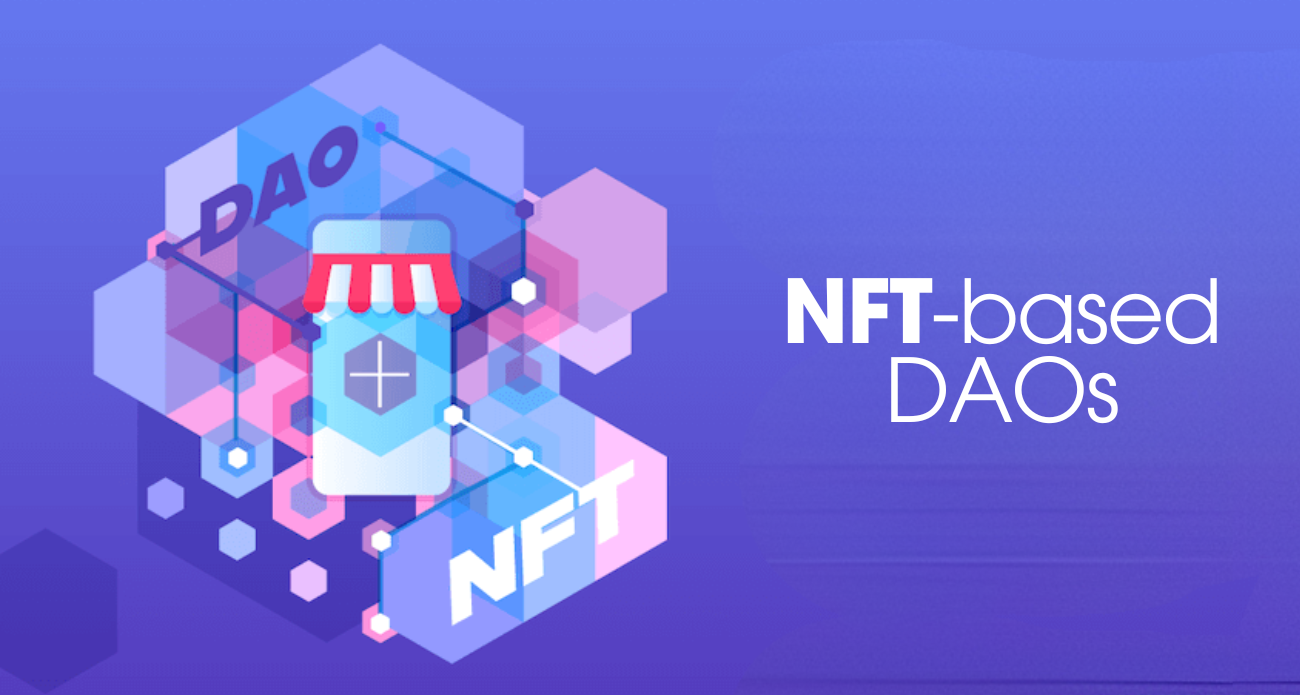Scaling for Success: A Look at Layer 2 Solutions for Ethereum
How Can Custom-Designed Cryptocurrency Tokens Be Applied In Various Scenarios?

 Albert Peter
Albert Peter
·
Follow
Published in
Web3Prophet
7 min read
·
Jan 17
Listen
Share
More
Custom-designed cryptocurrency tokens offer versatile applications across various scenarios, revolutionizing traditional industries and fostering innovative solutions. In the financial sector, these tokens enable streamlined transactions, reducing intermediaries and enhancing financial inclusivity. Moreover, they facilitate secure and transparent cross-border payments, mitigating traditional banking challenges. In gaming, custom tokens can represent in-game assets, providing gamers with true ownership and trading opportunities. Additionally, these cryptocurrency token developments empower content creators through novel monetization models, fostering decentralized ecosystems. Furthermore, custom tokens find utility in supply chain management, ensuring transparency and traceability. They can represent physical assets, proving authenticity and reducing fraud. Tokenization also extends to real estate, enabling fractional ownership and liquidity in traditionally illiquid markets. Overall, the adaptability of custom-designed cryptocurrency tokens spans industries, offering efficient, secure, and decentralized solutions that redefine conventional paradigms.
Additionally, these cryptocurrency token developments empower content creators through novel monetization models, fostering decentralized ecosystems. Furthermore, custom tokens find utility in supply chain management, ensuring transparency and traceability. They can represent physical assets, proving authenticity and reducing fraud. Tokenization also extends to real estate, enabling fractional ownership and liquidity in traditionally illiquid markets. Overall, the adaptability of custom-designed cryptocurrency tokens spans industries, offering efficient, secure, and decentralized solutions that redefine conventional paradigms.
Table of Content
Understanding Custom-Designed Cryptocurrency Tokens
What are custom tokens and how do they differ from traditional cryptocurrencies?
Advantages of Custom-Designed Tokens:
Disadvantages of Custom-Designed Tokens:
Use Cases in Finance
Custom Tokens in Governance
Tokenomics: Designing the Economics of Custom Tokens
Wrapping Up
Understanding Custom-Designed Cryptocurrency Tokens
Custom-designed cryptocurrency tokens represent a groundbreaking evolution in the digital asset landscape. These tokens, uniquely crafted to suit specific needs, have far-reaching applications. In finance, they streamline transactions, enhancing efficiency and inclusivity. Gaming sees a revolution with tokens representing in-game assets, providing true ownership and trading possibilities.
Supply chain and real estate benefit from increased transparency and liquidity through tokenization. Overall, custom tokens redefine traditional paradigms across diverse sectors, offering decentralized, secure, and transparent solutions. Their adaptability signals a shift towards a more efficient and innovative era in which digital assets play a central role in reshaping industries.
What are custom tokens and how do they differ from traditional cryptocurrencies?
The term “custom tokens” is often associated with blockchain technology and cryptocurrencies. However, it’s essential to note that the cryptocurrency space evolves rapidly, and new terms or concepts may emerge
Custom Tokens:
Custom tokens generally refer to digital assets or tokens created on existing blockchain platforms that allow users to create their unique tokens with specific features and functionalities. These tokens are often built on blockchain networks that support smart contracts, such as Ethereum. Ethereum, for instance, provides a platform for the creation of custom tokens using its ERC-20 and ERC-721 token standards.
Differences from Traditional Cryptocurrencies:
Purpose and Utility:
- Custom tokens often serve specific purposes within decentralized applications (DApps) or blockchain ecosystems. They can represent assets, voting rights, or even ownership of real-world assets.
- Traditional cryptocurrencies, like Bitcoin or Ethereum, typically function as a medium of exchange, a store of value, or a unit of account.
Functionality:
- Custom tokens can have unique functionalities based on the smart contract code that governs their behavior. For example, they may enable features like voting, and governance, or represent fungible/non-fungible assets.
- Traditional cryptocurrencies are generally designed for peer-to-peer transactions and don’t have the same level of programmability.
Blockchain Compatibility:
- Custom tokens are created on existing blockchain platforms, leveraging their infrastructure and security. For instance, tokens on the Ethereum blockchain use Ethereum’s smart contract functionality.
- Traditional cryptocurrencies operate on their native blockchains. Bitcoin operates on the Bitcoin blockchain, and Ethereum has its blockchain.
Standards:
- Custom tokens often adhere to specific standards like ERC-20 (for fungible tokens) or ERC-721 (for non-fungible tokens), ensuring interoperability with other tokens and platforms.
- Traditional cryptocurrencies operate based on their unique protocols and standards.
Use Cases:
- Custom tokens are frequently used within decentralized finance (DeFi) applications, tokenization of assets, and various other blockchain-based applications.
- Traditional cryptocurrencies are more generalized and are often used for transactions, investments, and as a means of transferring value across borders.
It’s important to stay updated with the latest developments in the cryptocurrency space, as new technologies and concepts may have emerged
Advantages of Custom-Designed Tokens:
⇒ Customization:
The primary advantage is the ability to tailor the token to specific requirements. Custom-designed tokens can be programmed with unique functionalities, allowing developers to create tokens that serve particular use cases within decentralized applications (DApps).
⇒ Flexibility:
Developers have flexibility in defining the features, rules, and behavior of custom cryptocurrency tokens. This adaptability enables a wide range of applications, from fungible tokens for transactions to non-fungible tokens representing ownership of unique assets.
⇒ Interoperability:
Tokens created based on established standards (e.g., ERC-20 or ERC-721) can benefit from interoperability within the broader blockchain ecosystem. This means they can be easily integrated into various platforms and traded on compatible exchanges.
⇒ Decentralized Finance (DeFi):
Custom tokens play a crucial role in the decentralized finance (DeFi) space, providing the building blocks for applications like decentralized exchanges, lending platforms, and yield farming.
⇒ Tokenization of Assets:
Custom tokens enable the representation of real-world assets on the blockchain through tokenization. This allows for increased liquidity, fractional ownership, and easier transferability of assets such as real estate or art.
⇒ Community Engagement:
Projects can engage their communities by issuing custom tokens as a means of participation, voting, or governance. This can foster a sense of community ownership and involvement in the project’s development.
Disadvantages of Custom-Designed Tokens:
⇒ Complexity:
Developing custom tokens requires a good understanding of blockchain technology and smart contract development. Complexity can lead to errors in code, potentially resulting in security vulnerabilities or unintended consequences.
⇒ Regulatory Uncertainty:
The regulatory environment for custom tokens is often uncertain and varies across jurisdictions. Compliance with existing and evolving regulations can be challenging, and non-compliance may lead to legal issues.
⇒ Security Risks:
Custom tokens are susceptible to security risks, especially if not adequately audited or if developers make coding mistakes. Smart contract vulnerabilities can lead to exploits, hacks, and the loss of funds.
⇒ Liquidity Challenges:
New custom tokens may face challenges in gaining liquidity and attracting users. This can affect their credibility and value on secondary markets, particularly if the project does not gain sufficient adoption.
⇒ Standards and Fragmentation:
The existence of multiple token standards and the lack of a universal standard can lead to fragmentation. This may hinder interoperability between different tokens and platforms, making it more challenging for developers and users.
⇒ Market Perception:
Custom tokens might be viewed skeptically by the broader market due to concerns about legitimacy, trust, and the potential for fraudulent projects. This perception can impact adoption and acceptance.
while custom-designed tokens offer significant advantages in terms of flexibility and tailored functionality, they also come with challenges related to complexity, security, regulatory compliance, and market acceptance. The success of custom tokens often depends on careful planning, thorough development, and addressing these challenges effectively.
Use Cases in Finance
Custom-designed cryptocurrency tokens are reshaping the financial landscape with their diverse applications. In peer-to-peer transactions, these tokens streamline processes, reducing the need for intermediaries and enhancing transaction speed and efficiency. Tokenization of assets, such as real estate or company shares, enables fractional ownership, increasing liquidity and accessibility to a broader investor base. Moreover, custom tokens facilitate cross-border payments, overcoming traditional banking barriers and reducing transaction costs.
In lending, smart contracts embedded in tokens automate loan agreements, enhancing security and reducing the risk of default. Additionally, these tokens can represent loyalty points or rewards programs, providing a seamless and transparent way for businesses to engage with customers. Overall, custom-designed cryptocurrency tokens in finance offer innovative solutions, fostering a more inclusive and efficient financial ecosystem.
Custom Tokens in Governance
Custom tokens play a pivotal role in governance by introducing decentralized and transparent decision-making processes. These tokens enable voting mechanisms where each token represents a voting right, empowering stakeholders to participate in governance issues. This decentralized approach ensures a more inclusive and democratic decision-making system.
Additionally, custom tokens can be used to incentivize participation and reward contributors for their involvement in the governance process. Through smart contracts, the rules and outcomes of governance can be predefined, enhancing transparency and trust within communities. Ultimately, custom tokens are a cornerstone in building robust and participatory governance structures in various decentralized ecosystems.
Tokenomics: Designing the Economics of Custom Tokens
Tokenomics, the economic design of custom tokens, is a crucial aspect defining their value and functionality within a blockchain ecosystem. It involves crafting a sustainable economic model by balancing token supply, demand, and utility. Well-designed tokenomics aligns incentives, fostering user engagement and network growth.
Factors like token distribution, scarcity, and governance mechanisms are carefully considered to ensure a stable and thriving ecosystem. Smart contracts often govern tokenomics, automating processes like reward distribution and governance. Effective tokenomics not only enhances the token’s value but also contributes to the overall success and longevity of decentralized projects by creating a robust and balanced economic foundation.
Wrapping Up
The application of custom-designed cryptocurrency token development across various scenarios holds transformative potential, reshaping traditional paradigms and catalyzing innovation. The financial landscape stands to benefit from streamlined transactions, reduced intermediaries, and improved financial inclusivity. The gaming industry is experiencing a paradigm shift with tokens representing in-game assets, empowering gamers with ownership and trading opportunities. Content creators find novel monetization avenues, fostering decentralized ecosystems.
Supply chain management and real estate witness increased transparency, traceability, and liquidity through tokenization. These scenarios collectively underscore the adaptability and efficiency of custom tokens, marking a departure from centralized structures toward decentralized, secure, and transparent solutions. As industries continue exploring the possibilities, custom-designed cryptocurrency tokens emerge as a pivotal force, unlocking new frontiers and redefining how we approach finance, gaming, supply chains, and beyond.
Curious about the latest insights and news in the Web3 world? Follow Web3Prophet for a deep dive into the crypto, blockchain, NFTs, DeFi, and more. Stay informed, inspired, and engaged.
Follow Web3Prophet for a deep dive into the crypto, blockchain, NFTs, DeFi, and more. Stay informed, inspired, and engaged.
If you’re passionate about contributing your own perspective to the Web3 narrative, consider writing for us.
Join our community of thought leaders and innovators by following this link. Together, let’s shape the future of the decentralized web.
Cryptocurrency
Crypto Tokens
Cryptocurrency Token
Token Development
Crypto Token Development
 Follow
Follow
Written by Albert Peter
57 Followers
·
Writer for
Web3Prophet
I'm Albert Peter a 6+ years Experience in blockchain. NFTs, crypto, and the future of tech. Let's talk.
More from Albert Peter and Web3Prophet

 Albert Peter
Albert Peter
in
Coinmonks
🔥Curious About January 2024’s Top 10 Crypto Picks? Find Out Here!
Explore the hottest crypto picks of January 2024! Discover the top 10 choices for a prosperous investment journey.
12 min read
·
Jan 12
54
 Linda Flowers
Linda Flowers
in
Web3Prophet
24/7 Money Making: The Most Reliable Crypto Arbitrage Trading Bots
Unlock 24/7 earnings with trusted crypto arbitrage bots — your key to consistent profits in the dynamic world of cryptocurrency trading!
8 min read
·
Dec 23, 2023
1
 Christian Edward
Christian Edward
in
Web3Prophet
Web 3.0’s Hottest Trend: NFT-based DAOs — How NFTs and DAOs are Revolutionizing Web 3.0?
In the dynamic realm of Web 3.0, two groundbreaking technologies are taking center stage: Non-Fungible Tokens (NFTs) and Decentralized…
11 min read
·
Nov 27, 2023
5
 Albert Peter
Albert Peter
in
Coinmonks
Could This Upcoming Meme Coin Launch Be the Next Major Crypto Sensation?
Unleash the potential! Explore the next big thing in crypto with this upcoming meme coin launch. Don’t miss out on the hype!
5 min read
·
Jan 12
51
Recommended from Medium

Angelika Candie
in
TokenTrends
A Comprehensive Look at Asset Tokenization Rules in the US
Asset tokenization is a revolutionary financial concept that has garnered significant attention in recent years. This innovative approach…
11 min read
·
Dec 1, 2023
4
Rogers Mayaka
in
Coinmonks
2024 Crypto Trends: Insights from Messari’s Theses to NFTs and DeFi Innovations
The cryptocurrency landscape is perpetually evolving, with new technologies and concepts emerging at a rapid pace.
3 min read
·
Jan 12
130
Lists


 Modern Marketing59 stories
Modern Marketing59 stories
·
392
saves
 Generative AI Recommended Reading52 stories
Generative AI Recommended Reading52 stories
·
652
saves
Syed Hasnaat Abbas
The Evolution of Consensus Algorithms: Beyond Proof of Work and Proof of Stake
Blockchain technology has revolutionized the way we perceive and transact value, with consensus algorithms playing a pivotal role in…
8 min read
·
3 days ago
 Tokenizing Real World Assets
Tokenizing Real World Assets
Chintai RWA Client Pipeline Preview
@ChintaiNetwork
4 min read
·
Dec 4, 2023
184
 Bellakites
Bellakites
The Essential Guide to Hiring Solidity Developers in 2024
If you’re looking to harness the power of blockchain technology for your business, one of the critical roles you’ll need to fill is that of…
6 min read
·
Jan 7
68
 Osama Ahmed
Osama Ahmed
OKX WALLET for ICE MINING
Outline
·
4 min read
·
5 days ago
2
2









































